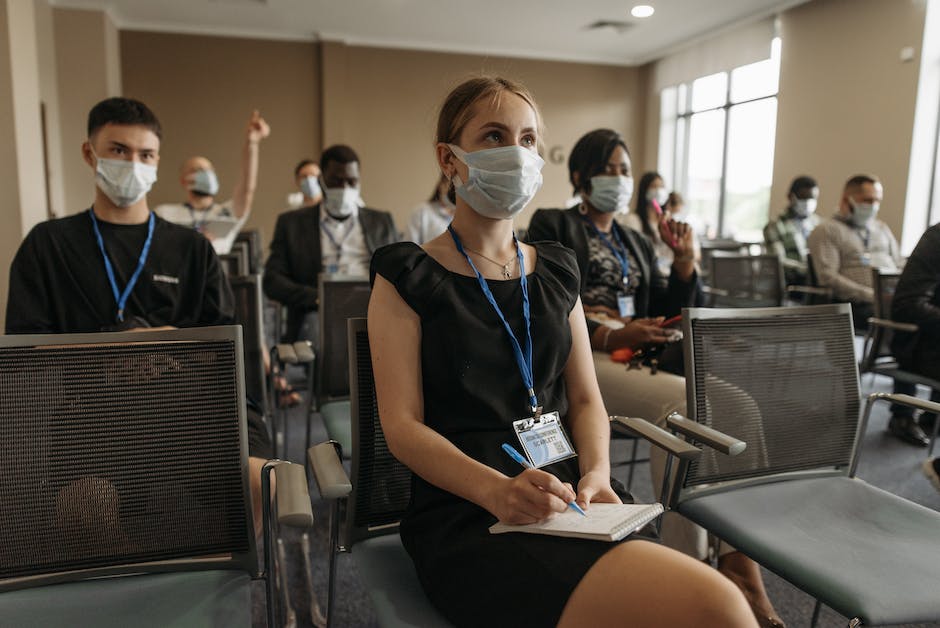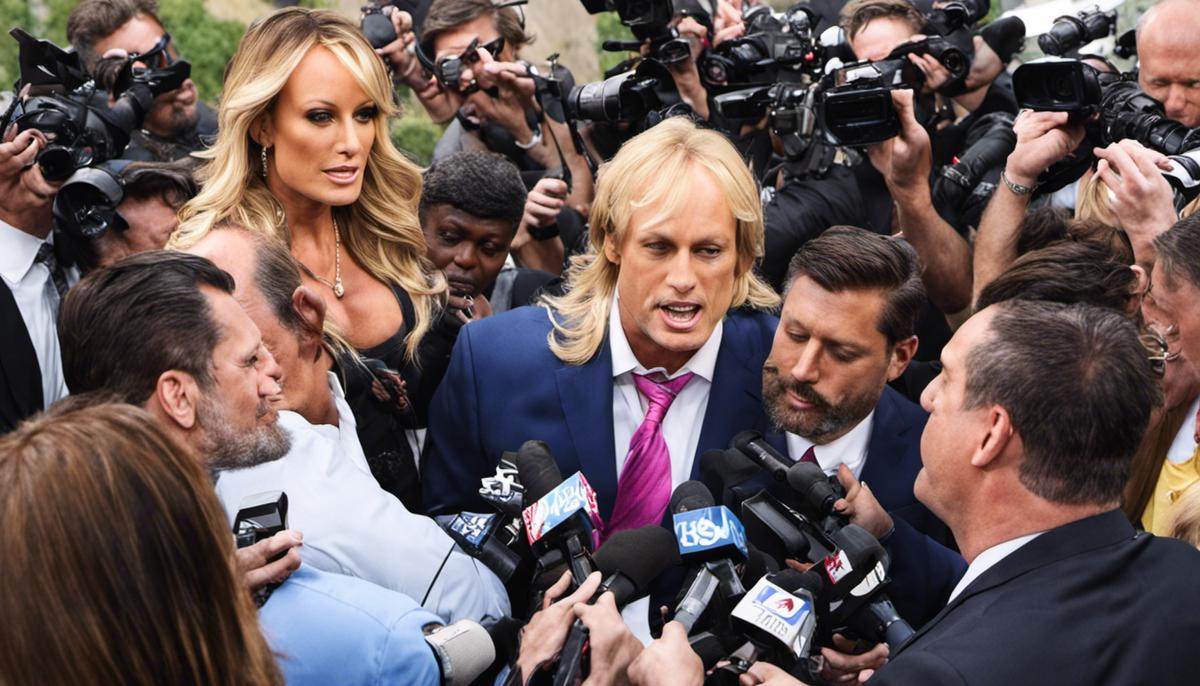In an era where media plays a substantial role in shaping public opinion, it is important to approach political issues such as the Stormy Daniels press conference with clear understanding and informed perspective. This highly publicized event calls for careful analysis not just for adults, but also for the younger generation. As mature and responsible individuals, it becomes our duty to demystify these complex issues and guide children through the labyrinth of political jargon, creating an environment where they can gain a balanced perspective.
- Understanding the Stormy Daniels Press Conference: This topic looks into the intricacies of this notable event and its significance in our present political landscape.
- Role of Media in Political Scandals: Exploring the media’s involvement in shaping public opinion, we shed light on how to help children approach news with a critical and discerning mindset.
- Civic Responsibility and Political Awareness: The importance of instilling civic responsibility and fostering political awareness in children to help them grow as well-rounded citizens is accentuated here.
Understanding the Stormy Daniels Press Conference
Discussing Current Events with Kids: The Stormy Daniels Press Conference
Communicating about sensitive events like the Stormy Daniels press conference can be a crucial yet daunting task for parents. It’s essential to provide age-appropriate information while teaching important values. To assist, here are insightful pointers on how to handle this topic at home.
Remember, it’s not about the individual, but the overarching themes. Stormy Daniels, an adult film actress and director, held a press conference on an alleged affair, which was the talk of the town due to its legal and moral implications. When discussing this with your children, focus should be on teaching about appropriate behavior, respecting others and understanding the importance of truth and accountability.
Firstly, remind children of the value of respect. The occupations or life choices of individuals do not dictate the level of respect they should receive. Just like we hold our children to treating everyone kindly in their school or neighborhood, it’s key to reinforce that this standard extends to all people, regardless of their background.
Secondly, utilize this event to underscore the importance of personal boundaries and consent. Encourage conversations about respecting other people’s choices, space, and autonomy. It’s never too early to teach about the meaning and necessity of consent, a vital life lesson enacted in varied contexts.
Next is introducing the concept of truth and honesty. In the Stormy Daniels case, truth was very important, particularly in legal matters and settlement agreements. Emphasize that no matter how difficult or uncomfortable, honesty is always the best policy.
Another point to consider is the importance of accountability. Everyone has a responsibility for their actions and should expect to face the consequences of their decisions. Help them understand that sometimes people make mistakes, and it’s crucial to take responsibility and make amends where needed.
In addition, introduce them to the idea of critical thinking. It’s an essential life skill that helps us question information and not take everything at face value. The press conference was a matter of he-said-she-said until evidence was presented. Hence, highlight how the individuals involved were scrutinized based on their actions, not their words.
Lastly, remember to keep communication open. Allow your children to ask questions and feel comfortable sharing their thoughts. Respond with patience and understanding, and remind them they can always come to you with questions or concerns to discuss.
The Stormy Daniels press conference, like many other current events, presents an opportunity for important life lessons. Through open and respectful dialogue, we can guide our children towards understanding the values of respect, consent, truth, accountability, and critical thinking, as they navigate their journey through life.

Role of Media in Political Scandals
Title: Navigating the Intersection of Media Influence and Political Scandals: A Lesson in Media Literacy for Our Young Ones
Politics, scandals, and media: when these three converge, it creates a whirlwind of information, which can be challenging for adults to decipher, let alone children. The Stormy Daniels case magnifies this conundrum, making it a monumental moment to explain the power of media and its role in political scandals.
While we’ve already established the necessity of fostering respect, understanding personal boundaries, valuing honesty, teaching accountability, enhancing critical thinking, and encouraging open communication, let’s take our young ones on a quest to grasp the laborings of the media, elucidated through the lens of the Stormy Daniels case. And in doing so, we must tread carefully, as we don’t want to skip over any nuances that play a vital role in building the media literacy framework.
The media’s function in political scandals isn’t as simple as reporting facts. It’s a Herculean task involving the framing of narratives, amplifying certain voices, and downplaying others. Media profoundly affects public perception. Highlighting this through real-world instances, like the Stormy Daniels case, gives children concrete examples to understand the media’s presence.
In helping our children comprehend media’s role, what resources do we provide them with? The first step is equipping them with credible news sources. In an era of rampant misinformation and ‘fake news’, the importance of reliable sources of information cannot be overstated. Teach them about reliable news sources, how to verify facts, and recognize biased reporting.
Another indispensable tool in our media literacy toolkit is context. Often, the media provides a snapshot, but without context, it’s merely a jumbled piece in a larger jigsaw puzzle. Explain to your children that fully understanding any political scandal requires knowledge of its context, the backstory, and the social or political climate surrounding it.
Simultaneously, it is crucial to understand the media’s dual role as both a reporter and influencer. Remember, the media does not just mirror society; instead, it contributes to shaping society, influencing perceptions, beliefs, and behaviors. Thus, make a point to discuss how the Stormy Daniels case was reported and how that influenced public opinion.
Through it all, remind your little ones to not just accept but question. Inculcate a healthy skepticism that facilitates a deeper understanding of the media. Tell them it’s okay to ask who reported the news, examine what was said, question what was left out, and why.
Raising media-literate children amid a complex digital landscape might feel overwhelming. Navigating through scandals like the Stormy Daniels case might seem tricky. However, seizing these moments as means to discuss media dynamics serves as a stepping stone in shaping children into informed citizens. After all, our goal is not to keep them in the dark but to illuminate new perspectives, fostering awareness and resilience. As the adage goes, “Every challenge offers an opportunity for learning,” and in this maze of media intricacy lies our opportunity to nurture a generation of judicious media consumers.

Civic Responsibility and Political Awareness
Building on these crucial topics, besides understanding media and politics, we also need to focus on teaching empathy and compassion, pivotal aspects that fuel acceptance. Encouraging children to empathize with individuals featured in news stories, such as the Stormy Daniels press conference, can allow them to perceive diverse perspectives and acquire valuable insights along the way. This further fosters a sense of fairness, encouraging children to resist unfair judgments based solely on headlines.
Developing an appreciation for wholesome leadership is another core value. Children learn by example, and public figures play a significant role in shaping their worldview. A scandal such as the Stormy Daniels case can serve as a catalyst for discussing the traits of ethical and responsible leadership. It’s crucial to instill the idea that leaders are not infallible but must still strive for integrity and transparency.
Comprehending the significance of privacy in public discourse is a lesson that can be drawn from such events. Children should understand that everyone, including public figures, has a right to privacy. This can establish a profound respect for the concept of privacy, enabling children to navigate the digital world responsibly.
Creating children’s awareness about the role of power is also crucial. Power can be wielded or abused, and the Stormy Daniels case offers a unique teaching platform. Children can be guided about proper use of power and the sense of responsibility that accompanies it, shaping them into future responsible citizens.
Additionally, such discussions can provide understanding about law and order and the basics of our justice system. It can be a gateway for lessons about the prevalence of legal channels, the idea of innocent until proven guilty and the importance of upholding justice.
Moreover, understanding the necessity of standing up for one’s rights and interests is an imperative lesson here. A figure like Stormy Daniels, who fought against powerful forces, can inspire children to learn about self-advocacy, courage, and resilience.
In conclusion, equipping children with knowledge of political events helps them mature into conscientious and informed citizens. The Stormy Daniels press conference and similar scenarios offer real-world cases to impart an array of life lessons, preparing children for a world where media, politics, and personal values are deeply interwoven. As caretakers and educators, venturing into these discussions could be the initial step in fostering discerning, empathetic, and politically literate children. So, switch on that television, read that news article together, and let’s sculpt informed citizens for a better tomorrow.

The Stormy Daniels press conference, while a symbol of current political happenings, also holds as a prime example of the necessity for media literacy and civic understanding. It is our shared responsibility to prepare the younger generation to navigate these events with discernment, understanding, and an underlying commitment to civility. Political awareness and civic responsibility aren’t just words, but the cornerstones of a flourishing democracy.
- Understanding events: The press conference is not just an event, but a learning tool to understand the complexities of the political world.
- Media’s role: It’s imperative to teach kids the skill to differentiate between facts and sensationalism, empowering them to question intelligently.
- Civic responsibility: Propelling children towards becoming informed, responsible future participants in the democratic process is our shared task. We must make it our aim, not just to shield them from inappropriate details, but to expose them to diverse standpoints and encourage dialogue.
